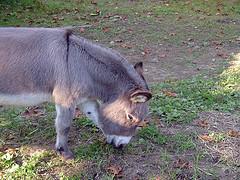Social Sciences
In the text ' ' ' ' objetividade' ' of the knowledge in sciences sociais' ' , Weber compares social sciences? including History and Economy with sciences of the nature in what it refers to the possibility of if making objective science. It does not have, second note of Conh (apud Weber, 2006), the objetividade as something given: same it is in question (therefore she always appears between quotations marks). Inside of this questioning, Weber if question where felt it has objective valid truths in sciences that if occupy of the cultural life, that has as study object the action human being. Weber already initiates its text refuting the idea of that sciences can (or it must) produce value judgments. According to Conh, science, ' ' (…) in accordance with the position that Weber defends, in the world of the scientific knowledge and this includes the world human (…) only can speak of what it is, not of what it would have to be. The knowledge alone can search support in facts (the data of the reality), never in values (the qualities in names of which if it evaluates reality). ' ' (CONH, GABRIEL apud Weber, 2006, p.8) No matter how hard in social sciences they are necessary explanations of principles of practical matrix, ' ' certainly it could not be its task and, in a generalized manner, of no empirical science to universally determine a practical common denominator for our problems in the form of last ideas and vlidas.' ' (Weber, Max, 1992, P. 112) science is rational, therefore it indicates the objective possibilities.
It fits to the man to decide what to make. ' ' The action of the scientist is rational regarding to an objective. The scientist if considers to announce factual proposals, comprehensive relations of causalidade and interpretations that are universally vlidas.' ' (Aron, 2002, p.466) However, the value judgment does not have to be excluded from the scientific analysis, contanto that it does not affect the validity of the work: a scientific truth must be valid for any person what it does not only mean that if cannot contest it, that it it must follow a logic and a method.

 The politics concept can be directed science to govern, to direct, to manage, the State. Science that can be infusa, that does not demand scientific studies, or science based on scientific principles, for another one scope the politics is the astuteness of if arriving at the power and if keeping in it. The historian, poet, diplomat, musician and Italian philosopher of the Renaissance, Nicholas Maquiavel (1469 – 1527) understand the politics as the art to govern, to direct the State and the maintenance of the power. Maquiavel did not trace a concept of what it is the politics, but displays in its book ‘ ‘ Prncipe’ ‘ as politics becomes.
The politics concept can be directed science to govern, to direct, to manage, the State. Science that can be infusa, that does not demand scientific studies, or science based on scientific principles, for another one scope the politics is the astuteness of if arriving at the power and if keeping in it. The historian, poet, diplomat, musician and Italian philosopher of the Renaissance, Nicholas Maquiavel (1469 – 1527) understand the politics as the art to govern, to direct the State and the maintenance of the power. Maquiavel did not trace a concept of what it is the politics, but displays in its book ‘ ‘ Prncipe’ ‘ as politics becomes.